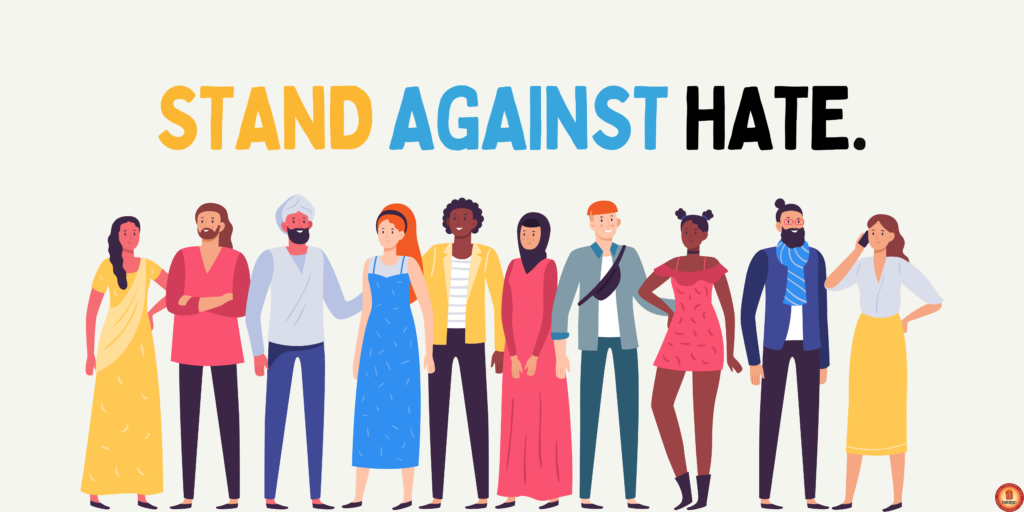We are deeply saddened by the recent surge in hate crimes and violence affecting our communities, both across the nation and here in Georgia. Our hearts go out to all those impacted, including individuals and communities who endure the weight of hate, trauma, and bias resulting from these atrocities, whether directly or indirectly. To support you during these challenging times, we’ve gathered resources focused on reporting hate crimes, managing the aftermath of traumatic events, and fostering emotional resilience for both adults and children.
What is a Hate Crime & How do I report?
| WHAT IS A HATE CRIME? At the federal level, a crime motivated by bias against race, color, religion, national origin, sexual orientation, gender, gender identity, or disability. Bias or Hate Incident: Acts of prejudice that are not crimes and do not involve violence, threats, or property damage. HOW DO I REPORT A HATE CRIME? If you believe you are the victim of a hate crime or believe you witnessed a hate crime— STEP 1: Report the crime to your state or local police. Dial 9-1-1 or call your local police station. Police officers may reach out to you for more information as they investigate the crime. STEP 2: Quickly follow up this report by reporting the crime to the Federal Bureau of Investigation (FBI). Online: You can report a hate crime to the FBI online at: tips.FBI.gov. Follow the instructions on the pop-ups and fill out the online form to report a hate crime. By Phone: Call the FBI at 1-800-CALL-FBI (1-800-225-5324). If you are not comfortable with contacting the local police, you can also reach out to your local FBI field office. Find the phone number for the FBI field office closest to you at www.fbi.gov/contact-us/field-offices. The FBI may reach out to you for more information as they investigate the crime. SOURCE: Department of Justice: Georgia Hate Crimes Fact Sheet OTHER WAYS TO REPORT: Not every hate incident involves a crime. You can report any incident to the Civil Rights Division at civilrights.justice.gov. Report discrimination at CAIR GA: Report an incident. Report threats or targets of hate crimes at ADC. |
Resources
- Resource Center for Victims of Hate Crimes
The Justice Department-funded VictimConnect Resource Center provides information and assistance to victims of crimes, including hate crimes. Trained victim assistance specialists are available at no cost to help victims find local support services at 1-855-484-2846 or by chat at the website. - Know Your Rights while Protesting
- Educate Against Hate
Government advice and trusted resources to help safeguard students from radicalisation, build resilience to all types of extremism - South Asian Americans Leading Together (SAALT) | Hate Crimes: A Quick Information Sheet for South Asians
- Southern Poverty Law Center
The SPLC monitors the activities of domestic hate groups and anti-government hard right extremists - Compassionate Atlanta
- Toolkit: Hate Crime Resources
- Resources for Combating Islamophobia
- Resources for combating Anti-asian hate
- STOP AAPI Hate
- Resources from OCA-Asian Pacific American Advocates
- AAJC’s Anti-Racial Profiling Project offers A “Know Your Rights” document when approached by law enforcement.
- The Asian American Federation offers many resources, including the stay safe from hate Booklet available in various Languages
- Resources for Combating Anti-Sikh Hate
- Resources for Combating Anti-Semitism
Bystander Intervention: Empowering Actions Against Hate

Practicing bystander intervention is crucial when witnessing a hate crime, as it can help prevent further harm and demonstrate solidarity with the victim. By intervening, bystanders can disrupt the incident, potentially de-escalating the situation and providing immediate support to the victim. Moreover, intervening sends a powerful message that hate and discrimination will not be tolerated in the community. Bystander intervention also fosters a sense of responsibility among individuals to actively address injustices, promoting a safer and more inclusive society for everyone.
Click on the graphic to the left to learn more about the Do’s and Don’ts of Bystander Intervention from The American Friends Service Committee.

